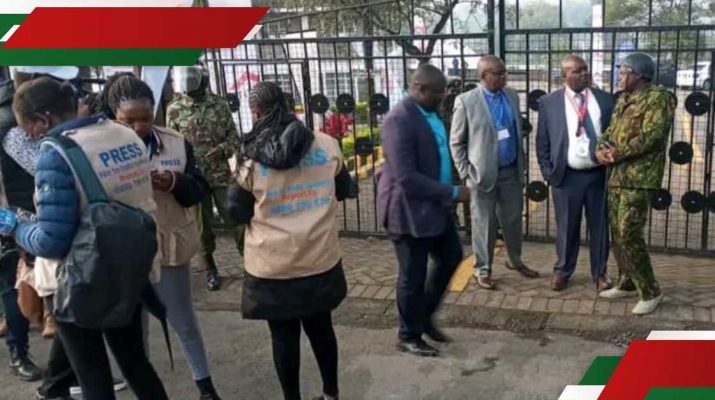By Dorothy Musyoka
There was heightened tension today at the Melvin Jones Hall in Nakuru as police officers barred journalists, students and members of the public from accessing the venue where Butere Girls High School was set to stage their much-anticipated play, Echoes of War.
The award-winning play, known for its bold exploration of gender-based violence and femicide, comes at a time when the country is grappling with a disturbing surge in murder cases involving women.
Police lobbed teargas cannisters to journalists who were in line of duty to cover the play by Butere girls which is reported to have been scripted by the former Kakamega senator Cleophas Malala Echoes of War.
According to police statistics, 129 women were murdered in the first three months of 2025 alone. In 2024, a staggering 579 cases of femicide were reported, sparking national outrage and calls for urgent policy and cultural reforms.
The play Echoes of War is believed to dramatize real-life accounts and systemic failures in protecting women and girls, themes that have reportedly unsettled some authorities and stakeholders.
Taking the stage on Thursday, the students’ echoes were silenced after being denied a public address system that has been in use in the National Drama Festivals as well as access to their costumes.
Instead of performing the play, the students sang their National Anthem as they broke down and left the stage.
In a move seen as a deliberate frustration, the students also lacked an audience to listen to their play.
Observers at the scene described a heavy police presence, with officers stationed at all entrances to the hall, preventing entry without providing clear explanations.
Butere Girls High School has long been celebrated for using theatre as a powerful tool to provoke social change and spark national dialogue. Their productions frequently address difficult topics like sexual abuse, mental health, and gender inequality.
Leaders and art lovers have condemned the police action, calling it an infringement on freedom of expression and access to public discourse.

